
In the skin care market, bakuchiol is being hailed as a “revolutionary plant extract that has been dubbed by many a natural retinol alternative.” Impressive trials are indicating powerful anti-aging results derived from an herb long used in traditional Ayurvedic and Chinese medicine.
What Is Bakuchiol?
Bakuchiol is extracted from the babchi (Psoralea corylifolia) plants leaves and stems. It is a native plant to Sri Lanka and India. The babchi plant grows 2 to 3 feet in height displaying pale purple flowers that become fruit bearing seeds.
As in Ayurvedic and Chinese medical practices, all parts of the babchi plant are used as a skin care component and as a treatment of many skin problems.
Difference Between Babchi oil and Bakuchiol extract
Babchi oil is extracted from the seeds of the babchi plant whereas bakuchiol is a particular composite extracted from both the leaves and seeds of the plant.
Babchi oil does possess anti-aging properties of bakuchiol and is often used as carrier oil for aromatherapy and other skincare products.
Products that contain the compound bakuchiol are in reference to an isolated and purified ingredient.
What is Bakuchiol’s Claim to Fame?
Bakuchiol is being sought out primarily as a potential natural alternative to retinol – without the negative side effects. Apparently, the vitamin A derivative ‘retinol’ is considered a gold standard in the skin care production market, widely used in acne and anti-aging products.
Bakuchiol Compares to Retinol Without Side Effects
A main complaint of retinol A has shown to be accelerated signs of aging over long term usage causing increased sensitivity to the suns UV rays in addition to redness, dryness and skin irritation. May also increase ones risk of skin cancer due to accelerated sensitivity.
Increases Collagen Production
In order to fight fine lines and wrinkles, collagen is an all important protein when looking to plump and firm up our skin. Collagen wards off the signs of skin aging which ineviditably show up as we age – stimulating collagen production is an essential component for getting back to your youthful looking self. Research shows that by applying collagen products externally to be ineffective because your skin can’t absorb the large molecules.
Bakuchiol has demonstrated the ability to boost collagen production. Look at this study which compared bakuchiol to retinol – bakuchiol decreased wrinkle surface area considerably.
Elasticity and Firmness of Skin Improved Restoring skin integrity was noted during a 12-week clinical trial where participants applied bakuchiol twice daily. Results showed significant improvement in elasticity and firmness of subject’s skin and as with other studies, without unwanted side effects exhibited with retinol treatments.
Products
Look for serums that contain bakuchiol extract, these have shown positive potential for skin integrity restoration. Other ingredients in a nightly serum may contain Vitamin C, Melatonin and bakuchiol extract demonstrating potential for improving skin firmness over twelve week duration.
Bakuchiol Acts as a Powerful Antioxidant
An important contribution of bakuchiol is it has so much anti-aging potential due to its substantial antioxidant properties. As commonly known today, antioxidants are key in combating free radical damage involved in inflammation and chronic health conditions, but antioxidants also play a vital role in maintaining skin integrity.
Why is this so important? Free radicals induce two specific enzymes known as collagenase and elastase. A main problem with free radicals is these enzymes break down collagen and elastin, our skins elasticity protector.
Skin Cell Regeneration As with most things, cell regeneration slows down with aging, bakuchiol encourages healthy skin cell renewal, making the skin appear brighter and youthful instead of dull.
Protect Skin from Photodamage
Photodamage is a general term that involves any skin change that occurs due to prolonged exposure to the sun. Many complaints include loss of elasticity, wrinkles, dark spots, fine lines, rough patches, and more onward to skin cancer.
Photodamage occurs over years; well in advance that it actually appears involving the deeper layers of the skin, making it more difficult to reverse. Herein lies a problem with retinol and other skin care ingredients, they increase photosensitivity.
Bakuchiol has not been shown to increase photosensitivity.
Bakuchiol Offers Acne-Fighting Properties
Understandably, interest lies in bakuchiol’s anti-aging potential in the skin care industry. But it also has usefulness against acne, which is most likely due to its antibacterial and anti-inflammatory properties.
On this subject, trails are limited and it is early days, however there is one clinical study showing a 1 percent topical bakuchiol treatment to be more effective at reducing acne than salicylic acid, which is apparently a common treatment of acne. Add to this when the two remedies were combined they had a much greater success rate than individually on their own.
In seeking a more youthful appearance, bakuchiol may prove helpful whether you use it as a pure extract or as a component of babchi oil or serum that contains bakuchiol.
References
1 What is Bakuchiol: Pharmacogn Rev. 2010 Jan-Jun; 4(7): 69–76.doi: 10.4103/0973-7847.65331 PMCID: PMC3249905 PMID: 22228944 Psoralea corylifolia Linn.—“Kushtanashini”, P. S. Khushboo, V. M. Jadhav, V. J. Kadam, and N. S. Sathe1 https://www.ncbi.nlm.nih.gov/pmc/articles/PMC3249905/
2 RETINOL AND RETINOL COMPOUNDS: https://www.safecosmetics.org/get-the-facts/chemicals-of-concern/retinol-and-retinol-compounds/
• Clagett-Dame M, Knutson D. Vitamin A in reproduction and development. Nutrients. 2011;3:385–428.
• Clagett-Dame M, Knutson D. Vitamin A in reproduction and development. Nutrients. 2011;3:385–428.
• NTP report: “Photocarcinogenesis study of retinoic acid and retinyl palmitate” August 2012 http://ntp.niehs.nih.gov/ntp/htdocs/lt_rpts/tr568_508.pdf April 6, 2015
• http://www.ewg.org/skindeep/ingredient/706889/RETINOL_%28VITAMIN_A%29/ April 6, 2015
• http://www.ewg.org/skindeep/ingredient/705541/RETINOIC_ACID/ April 6, 2015
3 Prospective, randomized, double-blind assessment of topical bakuchiol and retinol for facial photoageing. S. Dhaliwal, I. Rybak, S.R. Ellis, M. Notay, M. Trivedi, W. Burney, A.R. Vaughn, M. Nguyen, P. Reiter, S. Bosanac, H. Yan, N. Foolad, R.K. Sivamani. First published: 27 June 2018. https://onlinelibrary.wiley.com/doi/full/10.1111/bjd.16918
4 Bakuchiol: a retinol-like functional compound revealed by gene expression profiling and clinically proven to have anti-aging effects 12 wk trial. https://pubmed.ncbi.nlm.nih.gov/24471735/
5 Clinical evidence of the efficacy and safety of a new 3-in-1 anti-aging topical night serum-in-oil containing melatonin, bakuchiol, and ascorbyl tetraisopalmitate: 103 females treated from 28 to 84 days. https://pubmed.ncbi.nlm.nih.gov/30924254/
6 An Bras Dermatol. 2017 May-Jun; 92(3): 367–374.doi: 10.1590/abd1806-4841.20175481PMCID: PMC5514578 PMID: 29186250 An overview about oxidation in clinical practice of skin aging* Silas Arandas Monteiro e Silva,1 Bozena Michniak-Kohn,2 and Gislaine Ricci Leonardi3. https://www.ncbi.nlm.nih.gov/pmc/articles/PMC5514578/
7 Bakuchiol: a retinol-like functional compound revealed by gene expression profiling and clinically proven to have anti-aging effects. R. K. Chaudhuri, K. Bojanowski. First published: 29 January 2014. https://onlinelibrary.wiley.com/doi/abs/10.1111/ics.12117
8 Prospective, randomized, double-blind assessment of topical bakuchiol and retinol for facial photoageing. S. Dhaliwal, I. Rybak, S.R. Ellis, M. Notay, M. Trivedi, W. Burney, A.R. Vaughn, M. Nguyen, P. Reiter, S. Bosanac, H. Yan, N. Foolad, R.K. Sivamani – First published: 27 June 2018. https://onlinelibrary.wiley.com/doi/full/10.1111/bjd.16918
9 New Perspectives on Antiacne Plant Drugs: Contribution to Modern Therapeutics: Biomed Res Int. 2014; 2014: 301304.Published online 2014 Jul 24. doi: 10.1155/2014/301304PMCID: PMC4132408 PMID: 25147793 Priyam Sinha, Shruti Srivastava, Nidhi Mishra, and Narayan Prasad Yadav. https://www.ncbi.nlm.nih.gov/pmc/articles/PMC4132408/
Copyright © 2021 – All Rights Reserved – Michelle Honda Ph.D.
Announcement
Look for my new forthcoming books “Reverse Depression Naturally” (Spring 2020) “Reverse Inflammation Naturally” (May 31, 2017) “Reverse Thyroid Diseases Naturally” (June 2018) “Reverse Alzheimers/Dementia Naturally” (Nov.2018) “Reverse Heart Disease Naturally” (Jan.31, 2017) and “Reverse Gut Diseases Naturally Nov. 2016
Where to Purchase:
Reverse Gut Diseases Naturally Nov. 2016
Reverse Heart Disease Naturally Jan. 2017
Reverse Inflammation Naturally May 2017
Reverse Thyroid Disease Naturally June 28/2018
Reverse Alzheimers Disease Naturally Nov. 2018
Reverse Depression Naturally Spring 2020
Hatherleigh Press Page Buy Book RGDN
Local Book Stores in US and Canada
Disclaimer
While close attention was given to the accuracy of information in this article, the author accepts neither responsibility nor liability to any person with respect to injury, damage, loss or any circumstances involving alleged causes directly or indirectly related to the information in this article. The sole purpose is to educate and broaden ones awareness. This information is not meant to replace medical advice or services provided by a health care professional.





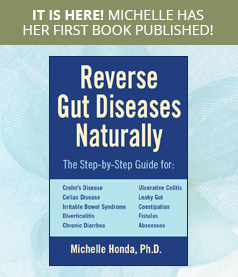

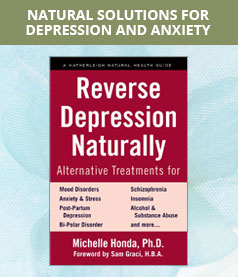
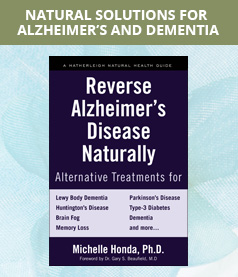
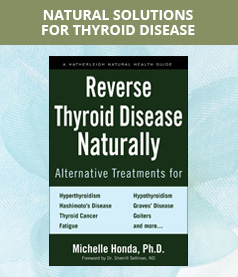

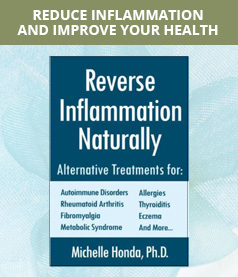
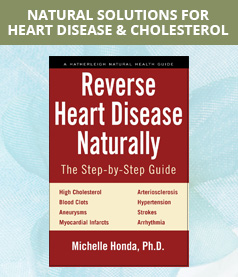
Follow Us!